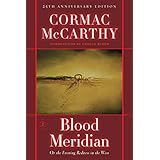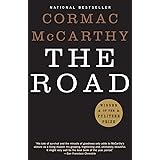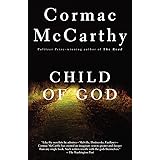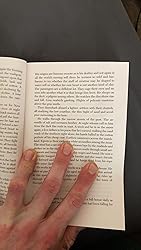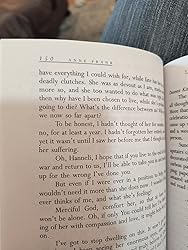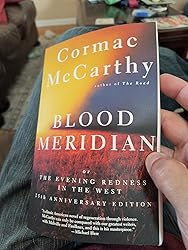
Enjoy fast, free delivery, exclusive deals, and award-winning movies & TV shows with Prime
Try Prime
and start saving today with fast, free delivery
Amazon Prime includes:
Fast, FREE Delivery is available to Prime members. To join, select "Try Amazon Prime and start saving today with Fast, FREE Delivery" below the Add to Cart button.
Amazon Prime members enjoy:- Cardmembers earn 5% Back at Amazon.com with a Prime Credit Card.
- Unlimited Free Two-Day Delivery
- Streaming of thousands of movies and TV shows with limited ads on Prime Video.
- A Kindle book to borrow for free each month - with no due dates
- Listen to over 2 million songs and hundreds of playlists
- Unlimited photo storage with anywhere access
Important: Your credit card will NOT be charged when you start your free trial or if you cancel during the trial period. If you're happy with Amazon Prime, do nothing. At the end of the free trial, your membership will automatically upgrade to a monthly membership.

Download the free Kindle app and start reading Kindle books instantly on your smartphone, tablet, or computer - no Kindle device required.
Read instantly on your browser with Kindle for Web.
Using your mobile phone camera - scan the code below and download the Kindle app.

OK
Image Unavailable
Color:
-

-
-
- To view this video download Flash Player
-

-

-
 2 VIDEOS
2 VIDEOS -

 Audible sample Sample
Audible sample Sample 


Blood Meridian: Or the Evening Redness in the West Paperback – May 5, 1992
Purchase options and add-ons
One of The Atlantic’s Great American Novels of the Past 100 Years
Based on historical events that took place on the Texas-Mexico border in the 1850s, Blood Meridian traces the fortunes of the Kid, a fourteen-year-old Tennesseean who stumbles into the nightmarish world where Indians are being murdered and the market for their scalps is thriving.
Look for Cormac McCarthy's latest bestselling novels, The Passenger and Stella Maris.
- Print length368 pages
- LanguageEnglish
- PublisherVintage
- Publication dateMay 5, 1992
- Dimensions5.13 x 0.78 x 8 inches
- ISBN-100679728759
- ISBN-13978-0679728757
The Amazon Book Review
Book recommendations, author interviews, editors' picks, and more. Read it now.
Frequently bought together

Similar items that may deliver to you quickly
 Moral law is an invention of mankind for the disenfranchisement of the powerful in favor of the weak.Highlighted by 4,483 Kindle readers
Moral law is an invention of mankind for the disenfranchisement of the powerful in favor of the weak.Highlighted by 4,483 Kindle readers Whatever exists, he said. Whatever in creation exists without my knowledge exists without my consent.Highlighted by 4,469 Kindle readers
Whatever exists, he said. Whatever in creation exists without my knowledge exists without my consent.Highlighted by 4,469 Kindle readers There is no such joy in the tavern as upon the road thereto, said the Mennonite.Highlighted by 2,676 Kindle readers
There is no such joy in the tavern as upon the road thereto, said the Mennonite.Highlighted by 2,676 Kindle readers
Editorial Reviews
Amazon.com Review
Review
—Michael Herr
"McCarthy is a writer to be read, to be admired, and quite honestly—envied."
—Ralph Ellison
"McCarthy is a born narrator, and his writing has, line by line, the stab of actuality. He is here to stay."
—Robert Penn Warren
From the Inside Flap
From the Back Cover
About the Author
Excerpt. © Reprinted by permission. All rights reserved.
Childhood in Tennessee – Runs away – New Orleans – Fights – Is shot – To Galveston – Nacogdoches – The Reverend Green – Judge Holden – An affray – Toadvine – Burning of the hotel – Escape.
See the child. He is pale and thin, he wears a thin and ragged linen shirt. He stokes the scullery fire. Outside lie dark turned fields with rags of snow and darker woods beyond that harbor yet a few last wolves. His folk are known for hewers of wood and drawers of water but in truth his father has been a schoolmaster. He lies in drink, he quotes from poets whose names are now lost. The boy crouches by the fire and watches him.
Night of your birth. Thirty-three. The Leonids they were called. God how the stars did fall. I looked for blackness, holes in the heavens. The Dipper stove.
The mother dead these fourteen years did incubate in her own bosom the creature who would carry her off. The father never speaks her name, the child does not know it. He has a sister in this world that he will not see again. He watches, pale and unwashed. He can neither read nor write and in him broods already a taste for mindless violence. All history present in that visage, the child the father of the man.
At fourteen he runs away. He will not see again the freezing kitchenhouse in the predawn dark. The firewood, the washpots. He wanders west as far as Memphis, a solitary migrant upon that flat and pastoral landscape. Blacks in the fields, lank and stooped, their fingers spiderlike among the bolls of cotton. A shadowed agony in the garden. Against the sun’s declining figures moving in the slower dusk across a paper skyline. A lone dark husbandman pursuing mule and harrow down the rain-blown bottomland toward night.
A year later he is in Saint Louis. He is taken on for New Orleans aboard a flatboat. Forty-two days on the river. At night the steamboats hoot and trudge past through the black waters all alight like cities adrift. They break up the float and sell the lumber and he walks in the streets and hears tongues he has not heard before. He lives in a room above a courtyard behind a tavern and he comes down at night like some fairybook beast to fight with the sailors. He is not big but he has big wrists, big hands. His shoulders are set close. The child’s face is curiously untouched behind the scars, the eyes oddly innocent. They fight with fists, with feet, with bottles or knives. All races, all breeds. Men whose speech sounds like the grunting of apes. Men from lands so far and queer that standing over them where they lie bleeding in the mud he feels mankind itself vindicated.
On a certain night a Maltese boatswain shoots him in the back with a small pistol. Swinging to deal with the man he is shot again just below the heart. The man flees and he leans against the bar with the blood running out of his shirt. The others look away. After a while he sits in the floor.
He lies in a cot in the room upstairs for two weeks while the tavernkeeper’s wife attends him. She brings his meals, she carries out his slops. A hardlooking woman with a wiry body like a man’s. By the time he is mended he has no money to pay her and he leaves in the night and sleeps on the riverbank until he can find a boat that will take him on. The boat is going to Texas.
Only now is the child finally divested of all that he has been.
His origins are become remote as is his destiny and not again in all the world’s turning will there be terrains so wild and barbarous to try whether the stuff of creation may be shaped to man’s will or whether his own heart is not another kind of clay. The passengers are a diffident lot. They cage their eyes and no man asks another what it is that brings him here. He sleeps on the deck, a pilgrim among others. He watches the dim shore rise and fall. Gray seabirds gawking. Flights of pelicans coastwise above the gray swells.
They disembark aboard a lighter, settlers with their chattels, all studying the low coastline, the thin bight of sand and scrub pine swimming in the haze.
He walks through the narrow streets of the port. The air smells of salt and newsawn lumber. At night whores call to him from the dark like souls in want. A week and he is on the move again, a few dollars in his purse that he’s earned, walking the sand roads of the southern night alone, his hands balled in the cotton pockets of his cheap coat. Earthen causeways across the marshland. Egrets in their rookeries white as candles among the moss. The wind has a raw edge to it and leaves lope by the roadside and skelter on in the night fields. He moves north through small settlements and farms, working for day wages and found. He sees a parricide hanged in a crossroads hamlet and the man’s friends run forward and pull his legs and he hangs dead from his rope while urine darkens his trousers.
He works in a sawmill, he works in a diphtheria pesthouse. He takes as pay from a farmer an aged mule and aback this animal in the spring of the year eighteen and forty-nine he rides up through the latterday republic of Fredonia into the town of Nacogdoches.
The Reverend Green had been playing to a full house daily as long as the rain had been falling and the rain had been falling for two weeks. When the kid ducked into the ratty canvas tent there was standing room along the walls, a place or two, and such a heady reek of the wet and bathless that they themselves would sally forth into the downpour now and again for fresh air before the rain drove them in again. He stood with others of his kind along the back wall. The only thing that might have distinguished him in that crowd was that he was not armed.
Neighbors, said the reverend, he couldnt stay out of these here hell, hell, hellholes right here in Nacogdoches. I said to him, said: You goin to take the son of God in there with ye? And he said: Oh no. No I aint. And I said: Dont you know that he said I will foller ye always even unto the end of the road?
Well, he said, I aint askin nobody to go nowheres. And I said: Neighbor, you dont need to ask. He’s a goin to be there with ye ever step of the way whether ye ask it or ye dont. I said: Neighbor, you caint get shed of him. Now. Are you goin to drag him, him, into that hellhole yonder?
You ever see such a place for rain?
The kid had been watching the reverend. He turned to the man who spoke. He wore long moustaches after the fashion of teamsters and he wore a widebrim hat with a low round crown. He was slightly walleyed and he was watching the kid earnestly as if he’d know his opinion about the rain.
I just got here, said the kid.
Well it beats all I ever seen.
The kid nodded. An enormous man dressed in an oilcloth slicker had entered the tent and removed his hat. He was bald as a stone and he had no trace of beard and he had no brows to his eyes nor lashes to them. He was close on to seven feet in height and he stood smoking a cigar even in this nomadic house of God and he seemed to have removed his hat only to chase the rain from it for now he put it on again.
The reverend had stopped his sermon altogether. There was no sound in the tent. All watched the man. He adjusted the hat and then pushed his way forward as far as the crateboard pulpit where the reverend stood and there he turned to address the reverend’s congregation. His face was serene and strangely childlike. His hands were small. He held them out.
Ladies and gentlemen I feel it my duty to inform you that the man holding this revival is an imposter. He holds no papers of divinity from any institution recognized or improvised. He is altogether devoid of the least qualification to the office he has usurped and has only committed to memory a few passages from the good book for the purpose of lending to his fraudulent sermons some faint flavor of the piety he despises. In truth, the gentleman standing here before you posing as a minister of the Lord is not only totally illiterate but is also wanted by the law in the states of Tennessee, Kentucky, Mississippi, and Arkansas.
Oh God, cried the reverend. Lies, lies! He began reading feverishly from his opened bible.
On a variety of charges the most recent of which involved a girl of eleven years—I said eleven—who had come to him in trust and whom he was surprised in the act of violating while actually clothed in the livery of his God.
A moan swept through the crowd. A lady sank to her knees.
This is him, cried the reverend, sobbing. This is him. The devil. Here he stands.
Let’s hang the turd, called an ugly thug from the gallery to the rear.
Not three weeks before this he was run out of Fort Smith Arkansas for having congress with a goat. Yes lady, that is what I said. Goat.
Why damn my eyes if I wont shoot the son of a bitch, said a man rising at the far side of the tent, and drawing a pistol from his boot he leveled it and fired.
Product details
- Publisher : Vintage (May 5, 1992)
- Language : English
- Paperback : 368 pages
- ISBN-10 : 0679728759
- ISBN-13 : 978-0679728757
- Item Weight : 2.31 pounds
- Dimensions : 5.13 x 0.78 x 8 inches
- Best Sellers Rank: #525 in Books (See Top 100 in Books)
- #3 in Westerns (Books)
- #49 in American Literature (Books)
- #103 in Literary Fiction (Books)
- Customer Reviews:
About the author

Cormac McCarthy was born in Rhode Island. He later went to Chicago, where he worked as an auto mechanic while writing his first novel, The Orchard Keeper. The Orchard Keeper was published by Random House in 1965; McCarthy's editor there was Albert Erskine, William Faulkner's long-time editor. Before publication, McCarthy received a travelling fellowship from the American Academy of Arts and Letters, which he used to travel to Ireland. In 1966 he also received the Rockefeller Foundation Grant, with which he continued to tour Europe, settling on the island of Ibiza. Here, McCarthy completed revisions of his next novel, Outer Dark. In 1967, McCarthy returned to the United States, moving to Tennessee. Outer Dark was published in 1968, and McCarthy received the Guggenheim Fellowship for Creative Writing in 1969. His next novel, Child of God, was published in 1973. From 1974 to 1975, McCarthy worked on the screenplay for a PBS film called The Gardener's Son, which premiered in 1977. A revised version of the screenplay was later published by Ecco Press. In the late 1970s, McCarthy moved to Texas, and in 1979 published his fourth novel, Suttree, a book that had occupied his writing life on and off for twenty years. He received a MacArthur Fellowship in 1981, and published his fifth novel, Blood Meridian, in 1985. All the Pretty Horses, the first volume of The Border Trilogy, was published in 1992. It won both the National Book Award and the National Book Critics Circle Award and was later turned into a feature film. The Stonemason, a play that McCarthy had written in the mid-1970s and subsequently revised, was published by Ecco Press in 1994. Soon thereafter, the second volume of The Border Trilogy, The Crossing, was published with the third volume, Cities of the Plain, following in 1998. McCarthy's next novel, No Country for Old Men, was published in 2005. This was followed in 2006 by a novel in dramatic form, The Sunset Limited, originally performed by Steppenwolf Theatre Company of Chicago. McCarthy's most recent novel, The Road, was published in 2006 and won the Pulitzer Prize.
Customer reviews
Customer Reviews, including Product Star Ratings help customers to learn more about the product and decide whether it is the right product for them.
To calculate the overall star rating and percentage breakdown by star, we don’t use a simple average. Instead, our system considers things like how recent a review is and if the reviewer bought the item on Amazon. It also analyzed reviews to verify trustworthiness.
Learn more how customers reviews work on AmazonReviews with images
-
Top reviews
Top reviews from the United States
There was a problem filtering reviews right now. Please try again later.
There are a few universals that fill a McCarthy novel: the crudity and Neo-Biblical, fire-and-brimstone bleakness of human sagas with no respite in sight, the almost complete absence of women, the haunting, bone-chilling, lyrical physical descriptions of nature and devastated landscapes, the metaphors literally dripping from every sentence, and – ubiquitously so – the brutal violence and desperation. But “Blood Meridian” stretches each one of these plot devices to the breaking point. Critics have universally praised it as one of the best American novels of the past 25 years and heavyweights like Harold Bloom have said it’s the most significant encapsulation of all of human frailty and triumph since ‘Moby Dick’. Yet it remains one of the most complex, challenging and exhausting works of fiction I have ever read, and this feeling seems to be widespread.
It’s certainly the most extraordinarily violent. The violence here is mind-numbing, routine-as-rain and runs on every page like fresh blood pulsing through a healthy artery. For several days when I was reading and re-reading the book, the story was lodged like a splinter in my brain, not letting go even when I was away from it; as one reviewer of the volume put it, there is no safe space (not in the contemporary sense of the term) from which you can watch what unfolds. But it was the kind of splinter whose pain and beauty you want to feel before you finally dislodge it in a final act of defiance. And even though I read it as carefully as I could, there are parts I will have to read again so that I can fully digest their mystical properties. When I finished I was glad to be done with it and just felt like sleeping, and yet I will re-read it at some point in time; it's a bone-rattling wine that makes you sick but ages with time and contains mysteries that are still waiting to be plumbed.
The book is challenging and exhausting for several reasons. The plot is set in 1840s Texas, Mexico and the American Southwest, and the language is often a bastardized mix of English and Spanish from that era; if you understand Spanish you will have a leg up. But that’s the least of the obstacles. Anyone who has read McCarthy knows how a single one of his sentences routinely fills an entire paragraph or even entire pages. Not just this, but these sentences can consist of garbled verbs and nouns and sometimes words that are pure inventions: there was more than one occasion when I looked up a word in a dictionary, only to find that just like McCarthy’s fevered creations, it’s a phantasmagorical thing that only exists in the heaven and hell of his characters. There is plenty of free association in the book, but somehow, this free association often congeals into a kind of mesmerizing, rhythmic meter.
The basic story centers on a boy of 14 years who joins a gang of bounty hunters who are hungry for Indian scalps. They ride on through the American southwest, regularly encountering various tribes of Indians and massacring them, scalping them, and parading these bloodied trophies around. In the process they also kill, maim and mow down hundreds of innocent men, women and children who have done them no harm. After each of these “missions” they ride back into town, collect their bounty and revel in a night of drunken excess and destruction before setting off on their next bloodthirsty trip through bleak and cruel lands. Like many other McCarthy stories, this begins in mid-stride, seemingly without a beginning and a background, wrenched from the orderly march of destiny. Who is the kid? Where does he come from? What is the historical context in which he lives in his life? None of this really matters. His actions simply are.
Although the story centers on the kid, the main character is a man called the Judge who has to be one of the most fascinating characters in all of fiction. He is a terrifying, large, sweaty, bald, crude hulk of a violent creature, capable of crushing heads simply by squeezing them. Blood and guts permeate his entire being, his naked body often providing the backdrop to some of the most gratuitous scenes in the narrative. And yet like Whitman he contains multitudinous contradictions. He engages in extended, complex disquisitions on every topic from evolution to astronomy, from philosophy to religion, from morality to agency and the Bible. He dances little jigs when in the mood. This murderous psychopath is, almost violently disgustingly, a kind of gentle Darwin, constantly sketching scenes, fossils, flowers and other natural objects in a little notebook around the fire and holding forth on the timeless beauties of the rocks and stars to young recruits. His extended monologues comprise some of the most interesting, deep-seated and shocking parts of the book, and ones that will almost certainly take more than one reading to fully digest.
Here’s one excerpt, one of the more comprehensible ones:
“The universe is no narrow thing and the order within it is not constrained by any latitude in its conception to repeat what exists in one part in any other part. Even in this world more things exist without our knowledge than with it and the order in creation which you see is that which you have put there, like a string in a maze, so that you shall not lose your way. For existence has its own order and that no man’s mind can compass, that mind itself being but a fact among others.”
For the Judge and the other men, violence is not something to be done, something to be inflicted on friends or foes; it’s simply their natural state of being. Just when you think the killing in these pages is conveniently making you numb, there is a fresh instance of it that delivers a blow in a wholly novel manner. There is no swashbuckling cowboy and Indian story here, although there’s certainly plenty of the lawlessness and the casual, break-bottle-on-head kind of violence which was prevalent on the frontier in those times. But that’s just the beginning. When someone is not being scalped, they are being pierced by arrows; when they are not being pierced by arrows their brains are being smattered on the walls. If it’s not bodies of babies strung out on a clothesline, it’s pet dogs being bound to their owners and cast alive into a fire. And all this happens relentlessly, often without rhyme and reason, at the drop of a hat. Violence and war here simply exist, infused into every emotion and cell and fiber of the world.
But the violence in the narrative is not just physical; it extends to the violent descriptions of pretty much everything. Man in this book is reduced to his primal state, wallowing in his own blood and filth. Random characters who seem to serve no further purpose are depicted as naked, bound in chains, with a leash around their neck if alive; split open, their entrails spilling out and being eaten by wild animals if dead. The animals in the story are desperate and wretched; wolves constantly trail the party and subsist on human and animal bones, lizards crawl out of the rocks and drink the men’s spittle and horses routinely buckle under in a heap of broken bones and spurting blood when they are shot. And not just the living organisms but the rocks and trees and weather and stones and lightning and arroyos and rivers and sand and houses and stirrups and food and whiskey and guns and nooses and feathers; all of these seem to cry out with crudity and conflict. And sometimes they evoke great beauty.
At least half of the narrative is devoted to descriptions of the gang just riding through landscapes of wind and rain and fire and sunsets and sand and storms and snow and heat whose descriptions drip with high metaphor, often mesmerizing; sometimes these streams of consciousness go on for pages. Here’s a typical - although atypically short - example:
“They rode on and the sun in the east flushed pale streaks of light and then a deeper run of color like blood seeping up in sudden reaches flaring planewise and where the earth drained up into the sky at the edge of creation the top of the sun rose out of nothing like the head of a great red phallus until it cleared the unseen rim and sat squat and pulsing and malevolent behind them.”
And a stunning, poetic one-sentence description of a war party of Indians on the horizon, defying any I have seen before:
“A legion of horribles, hundreds in number, half naked or clad in costumes attic or biblical or wardrobed out of a fevered dream with the skins of animals and silk finery and pieces of uniform still tracked with the blood of prior owners, coats of slain dragoons, frogged and braided cavalry jackets, one in a stovepipe hat and one with an umbrella and one in white stockings and a bloodstained wedding veil and some in headgear or cranefeathers or rawhide helmets that bore the horns of bull or buffalo and one in a pigeontailed coat worn backwards and otherwise naked and one in the armor of a Spanish conquistador, the breastplate and pauldrons deeply dented with old blows of mace or sabre done in another country by men whose very bones were dust and many with their braids spliced up with the hair of other beasts until they trailed upon the ground and their horses' ears and tails worked with bits of brightly colored cloth and one whose horse's whole head was painted crimson red and all the horsemen's faces gaudy and grotesque with daubings like a company of mounted clowns, death hilarious, all howling in a barbarous tongue and riding down upon them like a horde from a hell more horrible yet than the brimstone land of Christian reckoning, screeching and yammering and clothed in smoke like those vaporous beings in regions beyond right knowing where the eye wanders and the lip jerks and drools.”
One scene that deals with the horrible massacre of Indians like these is another single sentence one that goes on for several pages. You can of course tear away your eyes, but the only recourse for doing that would be to stop reading and step away. Once you are committed to the narrative however, it has contaminated your soul, so it would seem pointless to not trudge on.
Taking a ride with the Judge and his fellow scalpers feels like taking a ride through Sodom and Gomorrah with Lot, except that these men are the malevolent God of the Old Testament who are committed to raining fire and misery on the world. McCarthy’s predilection for Neo-Biblical, apocalyptic tellings is well-known; “The Road” featured some of these doleful ingredients at their most effective. And yet the central core of “The Road” was the tender relationship between father and son. There is no such redeeming relationship in “Blood Meridian” except the occasional fleeting bonds between men engaged in casual murder. In fact there is no redemption in the book at all, and that’s what makes it so wholly unique.
What is the rationale behind this kind of murderous, nihilistic writing, a vision for the end of time that never ends and keeps sucking the marrow from our bones, albeit in its own lyrical manner? Cormac McCarthy is a very private person who has granted maybe three or four interviews over the past twenty-five years. But a clue comes from his interview with – of all people, Oprah – which takes place at the Institute for Complexity Studies in Santa Fe, a scientific organization at the forefront of interdisciplinary research. In it McCarthy confesses that he has always liked hanging around scientists much better than around artists and writers. In fact he seems to have almost shunned contemporary writers. His scientific eye is evident in the often excruciatingly graphic details of physical landscapes and human anatomy that he provides.
And it is this love for describing things as they are in all their gory detail that I believe provides a window into McCarthy’s writing. McCarthy’s men seem to engage in a kind of inexorable, stark Darwinian extravaganza; just like the cruel laws of nature which are made bright through tooth and claw, the wanton killing and maiming here seems to be part of a Darwinian cycle of rebirth through murder. Just like mutations and nucleosynthesis and entropy and life and death, the violence in these pages just is.
There is still a key difference, however: unlike Darwinian evolution which somehow also manages to produce butterflies and tulips and kindness and altruism, there seems no redemption at the end of “Blood Meridian”. And that’s perhaps the best way to read it, as a story that can only be described, not explained.
Top reviews from other countries
Set in the American West during the mid-1800s, "Blood Meridian" follows the journey of a young runaway known only as "the Kid" as he joins a ruthless gang of scalp hunters led by the enigmatic and terrifying Judge Holden. McCarthy's vivid descriptions of the harsh landscapes, the relentless violence, and the moral ambiguity of the characters create a haunting atmosphere that stays with you long after you've turned the last page.
What sets "Blood Meridian" apart is McCarthy's mastery of language. His prose is dense and lyrical, with every sentence crafted to perfection. The dialogue is sparse but impactful, revealing the true nature of the characters and the darkness that resides within them. McCarthy's ability to capture the essence of the human condition, the rawness of survival, and the depths of human depravity is unparalleled.
The character of Judge Holden is one of the most memorable and chilling figures in literature. With his towering presence, intellectual prowess, and complete lack of morality, he embodies the embodiment of evil. McCarthy delves deep into the darkest corners of the human psyche, exploring themes of violence, greed, and the nature of humanity itself.
"Blood Meridian" is not a book for the faint of heart. It is a brutal and unflinching portrayal of the dark side of humanity, filled with graphic violence and disturbing imagery. However, for those willing to venture into its depths, it offers a profound examination of the human condition and the inherent darkness that lies within us all.
In conclusion, Cormac McCarthy's "Blood Meridian" is a masterpiece of American literature. It is a challenging and thought-provoking read that will leave you in awe of McCarthy's writing prowess. If you have a taste for dark and gritty fiction that explores the depths of the human soul, this book is a must-read. Just be prepared to confront the darkness within yourself as you journey through the unforgiving landscapes of the American West.





